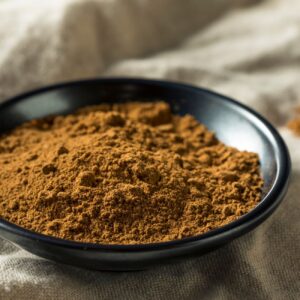Chili peppers are not only a staple in various cuisines worldwide but also the source of intense heat that can make our taste buds tingle. Beyond the fiery sensation, chili peppers offer a range of health benefits, making them a fascinating subject for scientific exploration. In this article, we delve into the science behind chili peppers to understand why they’re hot and how they contribute to our well-being.
The Heat of Capsaicin
The primary compound responsible for the fiery heat of chili peppers is capsaicin. This molecule binds to pain receptors on our tongue, triggering a sensation of heat and causing a release of endorphins, the body’s natural painkillers. The amount of capsaicin in chili peppers determines their heat level, measured on the Scoville Scale.
Health Benefits of Chili Peppers
Weight Management
Capsaicin has been linked to boosting metabolism and promoting weight loss. It can increase energy expenditure, enhance fat oxidation, and reduce appetite, making it a potential ally in maintaining a healthy weight.
Pain Relief
Despite causing initial pain, capsaicin can alleviate chronic pain when applied topically. It is used in creams and patches to help relieve pain from conditions such as arthritis, neuropathy, and even post-surgical discomfort.
Cardiovascular Health
Chili peppers have been associated with improved cardiovascular health. Capsaicin can help reduce blood pressure, improve blood flow, and decrease the risk of blood clot formation, thus contributing to a healthy heart.
Anti-Inflammatory Properties
Capsaicin exhibits anti-inflammatory effects, which may have therapeutic implications for conditions like rheumatoid arthritis and inflammatory bowel disease. It can help reduce inflammation and alleviate symptoms associated with these conditions.
Digestive Health
Contrary to the belief that spicy foods cause stomach ulcers, capsaicin in chili peppers may actually have a protective effect against ulcers. It stimulates the release of gastric mucus, which helps maintain the integrity of the stomach lining.
Antioxidant Power
Chili peppers contain various antioxidants, including vitamin C and carotenoids like beta-carotene. These compounds help neutralize harmful free radicals, reducing oxidative stress and potentially lowering the risk of chronic diseases.
Enhanced Immunity
The heat of chili peppers may help support the immune system. Capsaicin has been found to have antimicrobial and antifungal properties, which may aid in fighting off infections.
Culinary Uses and Varieties
Chili peppers come in a wide range of varieties, each with its unique heat level and flavor profile. From the mild and fruity bell peppers to the fiery habaneros and ghost peppers, there is a chili pepper to suit every taste preference. They can be used fresh, dried, powdered, or even as a condiment in hot sauces to add a kick to dishes.
Cautions and Precautions
While chili peppers offer numerous health benefits, it’s important to exercise caution, especially if you have a sensitive digestive system or certain medical conditions. Start with milder varieties and gradually build tolerance. When handling chili peppers, be careful to avoid contact with eyes and sensitive skin areas, as capsaicin can cause irritation.
Chili peppers not only provide a fiery burst of flavor but also offer an array of health benefits backed by scientific research. The capsaicin found in chili peppers is responsible for their heat, and it contributes to pain relief, weight management, cardiovascular health, and anti-inflammatory effects. So, the next time you savor the spicy heat of chili peppers, remember that there’s more to their fiery nature — they bring a dash of healthy science to your plate.


















